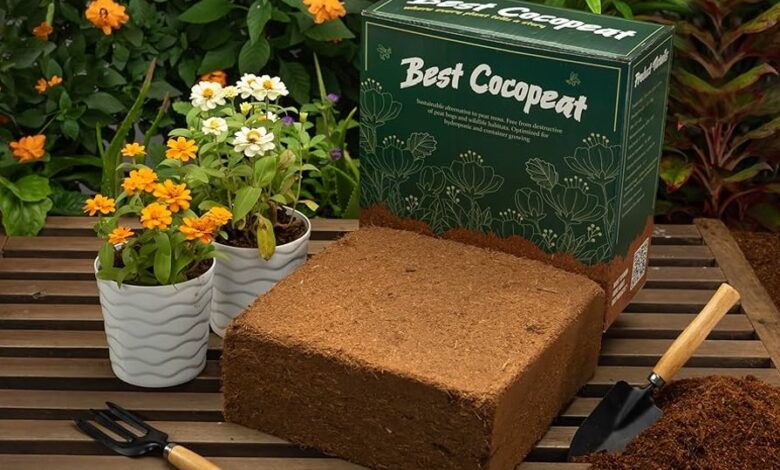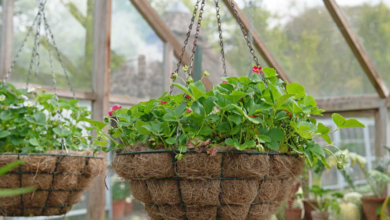Coco Peat Brick: The Natural Coconut Brick for Plants Every Gardener Needs

Introduction
Gardening has become more than just a hobby; it’s a lifestyle choice for many people who want healthier food, greener spaces, and sustainable living. One of the most popular gardening essentials today is the coco peat brick, also known as a coconut brick for plants. This eco-friendly growing medium has taken the gardening world by storm because it is natural, renewable, and incredibly effective for healthy plant growth. If you are looking for a simple way to improve your garden soil, boost plant roots, and conserve water, then coco peat bricks may be the perfect solution.
What is a Coco Peat Brick?
A coco peat brick is a compressed block made from coconut husks. When soaked in water, it expands into a soft, soil-like medium. This makes it an excellent choice for gardening, potting, and hydroponics. Unlike regular soil, coco peat is lightweight, airy, and has excellent water retention. Gardeners often use coconut bricks for plants because they provide the perfect balance between holding moisture and allowing excess water to drain, preventing root rot.
Benefits of Using Coco Peat Bricks
There are countless reasons why gardeners prefer coco peat bricks over traditional soil. Below are some of the most important benefits:
- Excellent Water Retention
A coconut brick for plants can hold up to 10 times its weight in water. This means your plants stay hydrated longer, reducing the frequency of watering. - Eco-Friendly and Sustainable
Since coco peat bricks are made from the outer husk of coconuts—a byproduct of the coconut industry—they are 100% natural and renewable. Using them helps reduce waste and supports eco-friendly gardening. - Better Root Growth
Plants thrive in coco peat because it provides a light, airy structure that allows roots to spread easily. With a coconut brick for plants, roots get more oxygen, leading to stronger and healthier growth. - pH Neutral
A coco peat brick has a nearly neutral pH, making it suitable for most plants. Unlike some soils that are too acidic or alkaline, coco peat creates the perfect growing environment. - Pest and Disease Resistant
Since coco peat is sterile, it reduces the risk of harmful bacteria, fungi, or pests. Many gardeners use coconut bricks for plants to create a safe starting medium for seeds and seedlings.
Read also: 9 Must-Have Gardening Tools for Any Home Gardener
How to Use Coco Peat Bricks in Gardening
Using a coco peat brick is simple. Just soak the compressed block in a bucket of water. Within minutes, it will expand into a fluffy, soil-like medium ready to use. You can mix it with garden soil, compost, or sand depending on your plant’s needs. Many people use coconut bricks for plants in pots, hanging baskets, seed trays, and hydroponic systems.
- For potted plants: Mix coco peat with compost and perlite for a balanced growing medium.
- For seed starting: Use pure coco peat for germination, as it is sterile and gentle for young roots.
- For hydroponics: A coco peat brick provides a stable base for soilless growing systems.
Why Gardeners Love Coconut Bricks for Plants
The popularity of coconut bricks for plants continues to grow because they are easy to use, affordable, and highly effective. Whether you are an experienced gardener or a beginner, switching to coco peat bricks can dramatically improve your results. Plants grow faster, stay healthier, and require less maintenance.
Conclusion
The coco peat brick is more than just a gardening product—it’s a smart, eco-friendly choice that benefits both your plants and the environment. By using coconut bricks for plants, you are choosing a sustainable, natural, and highly effective growing medium. Whether you are planting vegetables, flowers, or herbs, coco peat ensures strong roots, better hydration, and healthier growth.
If you want your garden to thrive with less effort, it may be time to replace regular soil with a coco peat brick. Try it once, and you’ll understand why so many gardeners around the world swear by the simple yet powerful coconut brick for plants.

